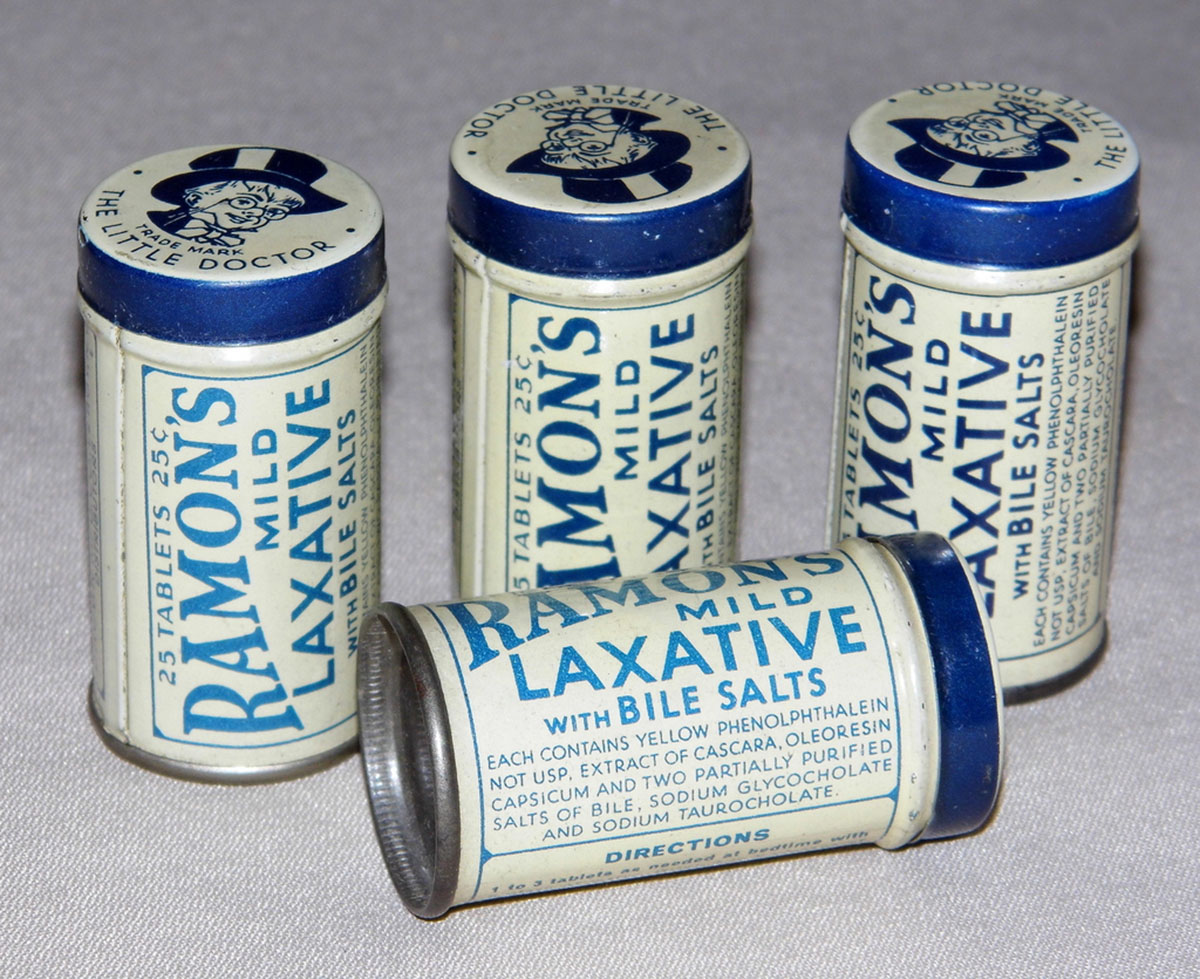Laxatives are foods or drugs that are eaten or taken with the sole purpose of increasing stool frequency and the ease at which they are passed. There are many recognized natural laxatives, such as prunes, apples, broccoli and beans, among others. These natural laxatives are all high in certain vitamins and minerals, particularly potassium, and are also high in dietary fiber. These properties mean they have a positive effect on digestion and, consequently, can help to relieve constipation.
However in more severe cases, a doctor’s input may be needed in order to combat constipation, and that is where laxative drugs may come into play. Laxatives are safely prescribed by physicians to treat chronic constipation, which is defined as the infrequent passage of stools lasting more than three months.

Laxatives: Use Vs Abuse
Problems occur when the use of laxatives turns into laxative abuse. With the plethora of information available today on the internet, many people self-diagnose themselves and turn to over-the-counter medicines in an effort to cure themselves without the need to visit a doctor, which can be a costly process. A recent study reported that 16 percent of people with constipation admitted to self-diagnosing and using laxatives. The same study also reported that this trend was associated with increasing age, symptom frequency and lower income and education. Laxatives are also not recognized or recommended by anyone medically qualified as an effective or appropriate way to lose weight, yet they are misused throughout the world with that intent. Although they may be prescribed in cases of chronic constipation, doctors warn against persistent use of laxatives even in these cases because of concerns over colonic tissue wearing out, which can cause the body to be unable to expel stools due to long-term over-stimulation.
READ Diet Plans For Women: The Best Weight Loss Methods For Your Gender
One study showed that the United States has the highest rate of laxative use globally with Americans spending more than $800 million a year on the drugs. This is an alarming statistic, particularly given that many people have not educated themselves in how to use laxatives correctly. Taking laxatives is commonly regarded as a "quick-fix" way of losing weight, and while many are available over the counter, they are often abused in this way. Frequent bowl movements caused by the drugs gives people the false message that their bodies are being cleansed and that they are therefore losing weight at their desired speed. In extreme cases, this behavior is classified as a variant of Bulimia, a serious eating disorder.
Weight Loss And Laxatives: What Is Actually Lost When Laxatives Are Used?
Any weight lost with the help of laxative medicines is actually attributed to the loss of water only. Contrary to popular belief, by the time the laxative drug is acting on the large intestine, most calories in the food ingested will have already been absorbed by the small intestine. Laxatives stimulate the large intestine to empty quicker than it normally would, so all that is happening is loss of water, minerals, electrolytes and food that is indigestible anyway.

Use Laxatives, Risk Serious Side Effects
Not only are laxatives not the way to achieve weight loss, they can also cause many unpleasant side effects. Arguably, one of the most severe of these is a water-electrolyte imbalance. Electrolytes are essential in order for the human body to function normally as they play a vital role in maintaining homeostasis within the body. This includes heart and neurological function, delivery of oxygen to vital organs and muscles, fluid balance and more. Any abnormalities in the levels of vital minerals such as potassium, sodium and calcium will cause serious water-electrolyte imbalance, which in turn messes with heart and neurological functions.
Laxatives Are Associated With Long-Term Health Damage
Aside from removing important nutrients and calories, reducing natural fat absorption and upsetting electrolyte levels, the use of laxatives also causes stomach cramps, nausea, diarrhea and rectal bleeding. Irreversible damage to the intestinal tract by using laxatives as a method for dieting can lead to the body becoming dependent on the drugs. If the body suddenly stops ingesting laxatives, the intestines can slow down and lose their ability to perform their normal function of removing waste from the body altogether. In addition, chronic laxative use over a prolonged period of time can damage the nerve endings in the large intestine. This means that they no longer respond to stimulation and so a downward spiral is created where higher and higher doses of the drug is needed to create any bowl movement at all.
READ Fat Chance: Being Slightly Overweight Is Actually Good For Your Health?
The bottom line is that health is paramount. There are many ways of achieving and sustaining a healthy body weight. Every dietitian knows very well that quick fixes, many of which are heavily marketed, hardly ever work. A healthy diet together with an active lifestyle are always the best ways to lose weight and maintain it, not abusing medication.
- Muller-Lissner S, 2007, The difficult patient with constipation. Best Practice & Research Clinical Gastroenterology, 21(3), 473-484
- Wald A et al, 2008, A multinational survey of prevalence and patterns of laxative use among adults with self-defined constipation. Alimentary Pharmacology and Therapeutics, 28(7), 917-930
- Muller-Lissner S, 1993, Adverse Effects of Laxatives: Fact and Fiction. Pharmacology, 47, 138-145
- Faigel DO, 2002, A clinical approach to constipation. Clinical Cornerstone, 4(4), 11-21
- Xing JH and Soffer EE, 2001, Adverse effects of laxatives. Diseases of the Colon & Rectum, 44(8), 1201-1209.
- Photo courtesy of FeatherTar via Flickr: www.flickr.com/photos/featheredtar/2314499549
- Photo courtesy of France1978 via Flickr: www.flickr.com/photos/51764518@N02/9059934653


Your thoughts on this